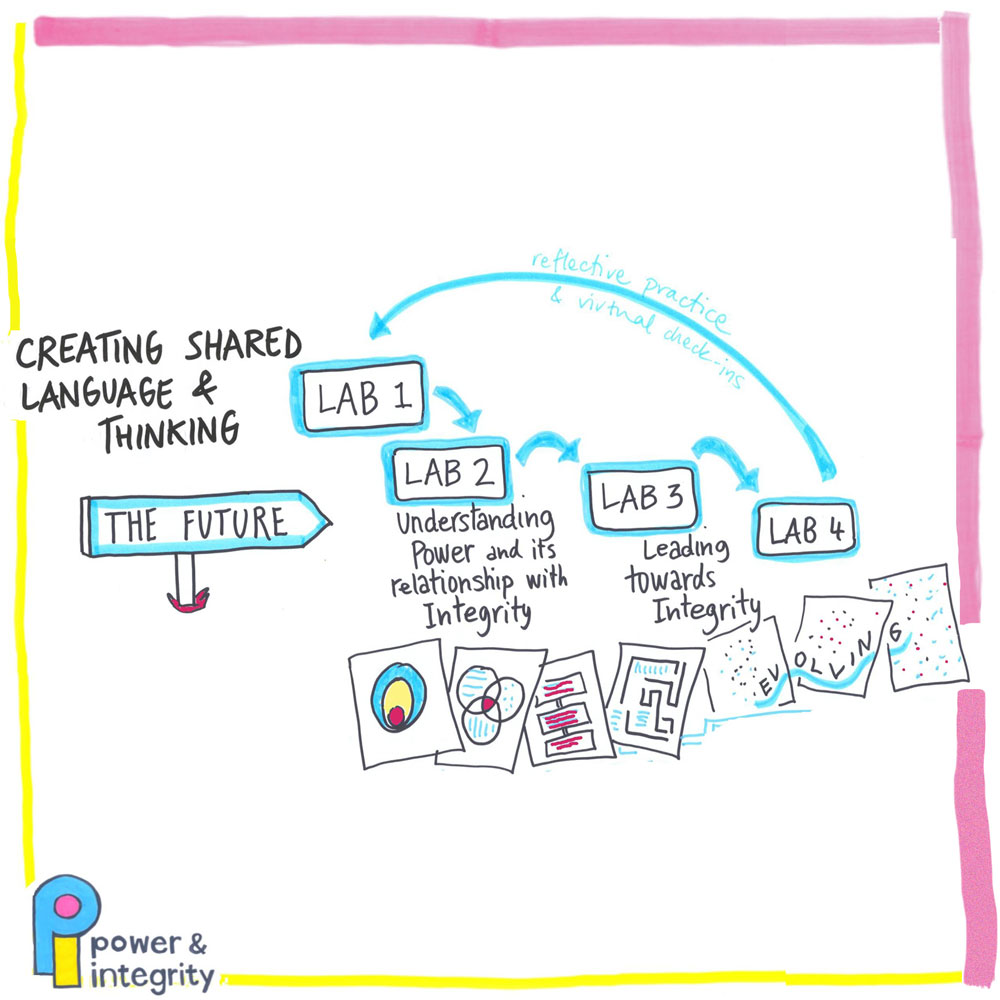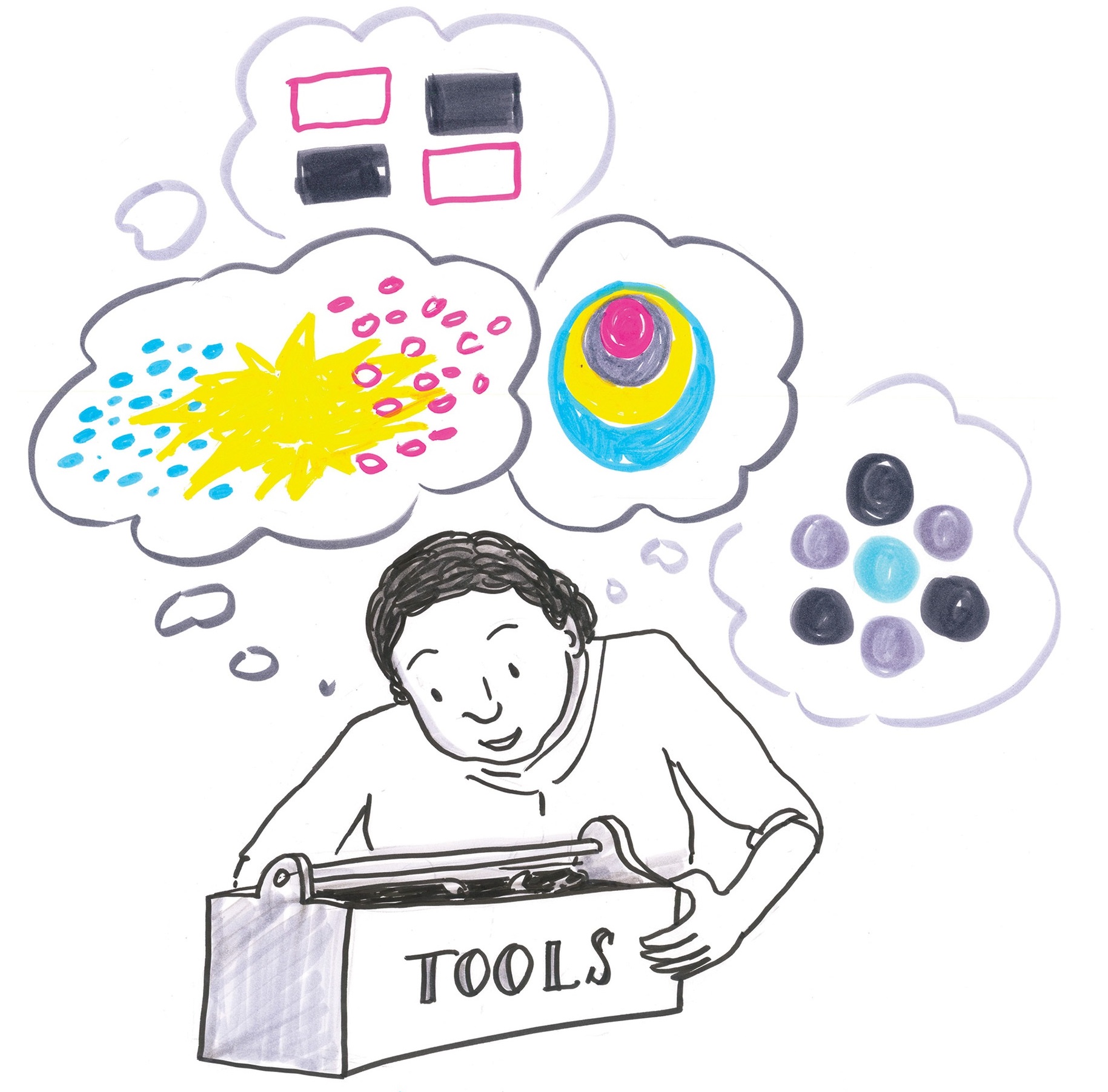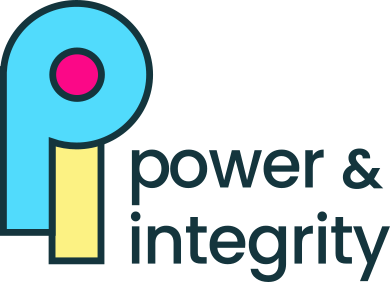
Power lab learning
Key learning
The series of Power Lab workshops aimed to:
- test and refine our assumptions about how power and integrity interact within purpose-led organisations
- start to create tools for sharing openly
We created this online resource to share the key learning.
What we learned
Power Lab findings
Our four high-level findings were clear:
1Understanding power can enable a holistic and coherent approach to organisational integrity
88% of participants strongly agreed
2Leadership and Governance need to be engaged
66% FELT BOARDS SOULD BE ENGAGED AND 88% FELT eXECUTIVE LEVEL SHOULD BE ENGAGED
3There is a need for common language and understanding of organisational integrity and its relationship with power at a sector level
55% strongly agree and 33% somewhat agree
4Donors, regulators and other sector level actors have a role in supporting organisations to work with integrity
77% strongly agree
Stats are from the post-lab participant survey
‘We found the Power Lab to be incredibly helpful in starting a conversation within our organisation about power and integrity.’
‘The benefit of clarity of shared language: We assume people understand the same thing, but it’s not the case.’
‘I agree about bringing together trustees, senior executives and practitioner roles.’
‘Sometimes the public and donors are rooted in different narratives from ourselves. We need to look for common values, not differences.’
Our learning journey
Key learning by theme
The Power Lab provided us with a wealth of rich information to draw from. We have collated lab findings under four headings: integrity, power, leadership and sector. The key lessons learned are listed below, with links to more detailed information on the individual learning pages. It’s important to bear in mind that these are only preliminary findings, especially given the limitations of the PI team and participant diversity.Integrity
- The 3Ps Model provides a holistic overview of organisational integrity
- Integrity is strengthened by aligning across organisational purpose, people and practices
- An integrity-centred approach could also bring operational benefits
- We understand organisational integrity as a set of emerging principles
Power
- The power lens shows how power plays out in organisations
- Organisations can unintentionally perpetuate the societal inequalities they aim to address
- Different forms of inequality can shape similar behaviours of exclusion
- Anti-oppression work must be intersectional
- Learning about power is uncomfortable but necessary
- Power analysis helps identify foundational steps towards organisational integrity
- The Power Lens and 3Ps Model combined enable a coherent and integrity-centred approach
Leadership
- Power-sensitive leadership is essential
- Integrity requires representation of and strategic input from communities served and people with lived experience
- Power-sensitive leadership requires self-awareness and personal development
Sector
- The sector’s dynamics can undermine organisational integrity
- Wider collaboration to enable organisational integrity is needed
- Shared language and understanding of power and integrity is a helpful first step

Activities and tools
The learning pages include popups with descriptions of Power Lab activities and details of how we have started to develop and adapt tools to help organisations work towards integrity. The evolving set of tools will soon be available as a Power Toolbox.

Beyond the lab
Priority areas moving forward
Based on the Power Lab learnings, we are prioritising two approaches. These offer practical, informed support to organisations, while at the same time fostering wider movement building for a more just and equitable sector.
Professional Services
We work with organisations to develop a holistic understanding of how power dynamics influence their governance, operations and overall impact, while raising awareness across the sector.
We offer trusts, foundations and non-profit organisations an approach to understand their practices and impact, and to identify practical steps moving forward. We find that board engagement is vital to ensure the organisation’s formal power enables rather than undermines organisational integrity.
As a first step, we recommend a workshop to explore this, applying power analysis tools that we have adapted following research undertaken with organisations in the sector. We also offer bespoke services, including strategic consultancy, training and coaching and we recommend other experts in the sector for specialist areas.
Movement Building
We support movement building and collaboration within the sector, participating in roundtables, talks and webinars. We will also continue to provide open access to our learning and evolving tools via our website. As a first step we are sharing the Power Lab learning.
We are an open source, non-profit organisation and are committed to meeting organisations where they are, providing a non-judgemental space to guide them in this important, specialised work.
Find out more about the PI initiative
Check out our media channels
We’re starting to explain more about PI at events and via blogs and other media channels. See what’s available on our news page.
Stay updated
If you want to know how our work is progressing, why not join the PI mailing list? We’ll let you know about news, upcoming events and other important information.
Get in touch
Do you want to know more about participating in the PI initiative? Perhaps you have a media enquiry or just a general enquiry about our work? If so, let us know.
How to use this resource
We recommend starting with our the introduction to the power lab or the learning overview page.
From there, self direct through the themed labs in which there are options for further detail on activities, tools and findings.
The learning does build from lab to lab, so we recommend viewing them in order and then dipping back for resources as helpful.
Get in touch to provide feedback or learn about upcoming resources [email protected]
PI team and Participant Diversity
The participating organisations were diverse in terms of size, purpose, issues and resources. However, both the PI team and the participants lacked diversity in some areas. We had good representation in terms of gender, sexuality, caring responsibilities, part-time versus full-time contracts, and living with long-term health/ disabilities.
Diversity among Lab participants was limited by our focus on senior roles, and to some extent by the London location. There were noticeable shortcomings in racial and ethnic diversity. We did not collect information on participant’s class and educational backgrounds.
Although we explained our decision to focus on the role of leadership, participants challenged us on why we had not involved people from the communities they served, asking if excluding them would reinforce power dynamics. We recognise that the Labs’ somewhat dominant and homogeneous composition did limit our ability to question ourselves and to create new knowledge outside dominant ways of thinking.
Not surprisingly, with executive and board-level participants recruited to the Lab, the lack of diversity was an example of the very integrity issues we are concerned about.
As well as matters relating to misconduct, integrity aspects can include a wide range of other concerns about culture, leadership, standards in supply chains or partnerships, investments in markets that undermine the mission, etc.
For example, power analysis is a key area of research at the Institute of Development Studies, University of Sussex. ‘Power, Empowerment and Social Change’, published in 2019, provides an overview of well-established frameworks in chapter 3.

